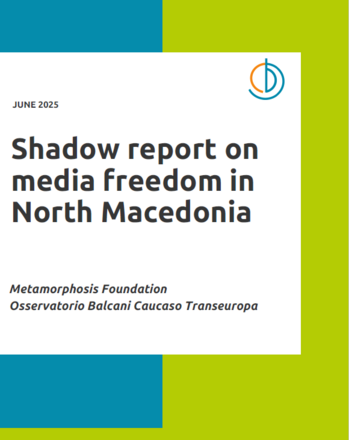
North Macedonia has made progress toward aligning its media legislation with EU standards, but serious challenges persist. Despite a decline in violence against journalists, the media environment remains fragile: disinformation, political and economic pressure, and a lack of media professionalism continue to undermine public trust and media independence.
The media market is highly fragmented, especially online, with many outlets created to exploit state-funded election advertising. Public service broadcaster MRT suffers from political interference and poor funding, while ownership transparency and regulation remain weak, particularly in the digital sphere. Amendments in 2024 introduced an online media registry, but enforcement and ethical standards are inconsistent.
State advertising and campaign funding heavily influence media content, fostering clientelism and unfair competition. Many outlets rely on donor support, highlighting the sector’s financial unsustainability.
Journalists face online harassment, especially women, and SLAPPs remain a concern, though legal reforms have introduced some protections. Regulatory bodies lack full independence, with political appointments undermining credibility.
The report calls for stronger regulation, sustainable funding, protection from political influence, and enhanced media literacy. Despite EU integration efforts, reforms are slow and often symbolic, leaving media freedom vulnerable without stronger domestic and international commitment.
Tags: North Macedonia Media freedom Rule of LawThe content of this article can be used according to the terms of Creative Commons: Attribution-NonCommercial 4.0 International (CC BY-NC 4.0) . To do so use the the wording "this article was originally published on the Resource Centre on Media Freedom in Europe" including a direct active link to the original article page.

